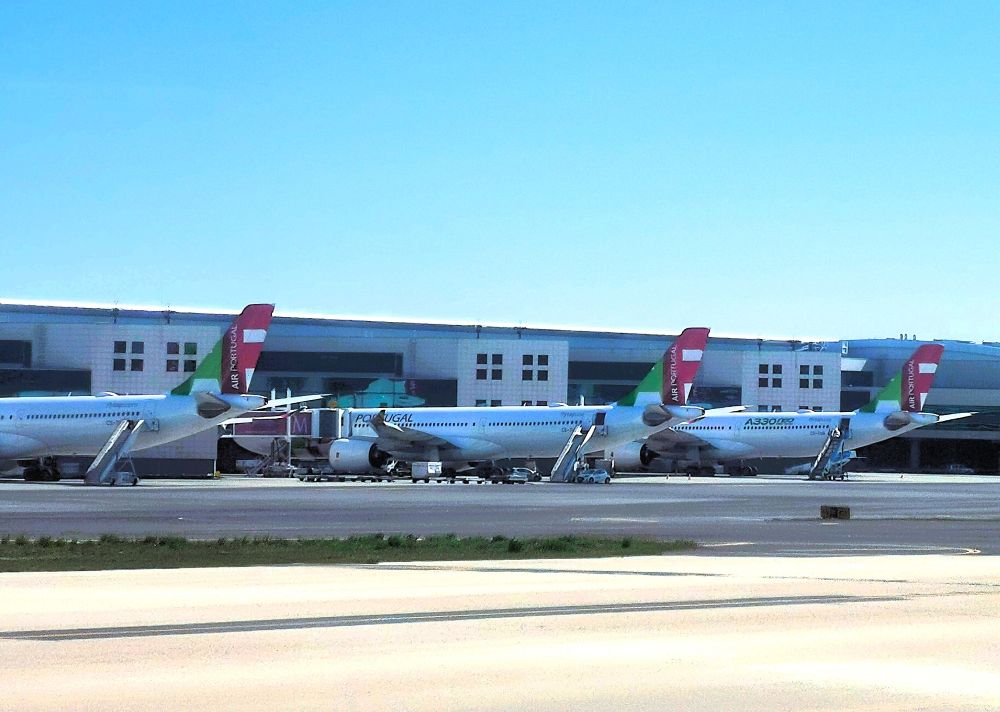WTO: world tourism stalls in 2001 (full release)
The World Tourism Organisation has released the following information on tourism in 2001.
Growth in the normally buoyant tourism sector ground to a halt in 2001 and international arrivals slipped by 1.3% due to the terrorist attacks of September 11 and the weakening economies of major tourism generating markets , according to preliminary results released by the World Tourism Organization (WTO).
“The tragic events of September 11 affected tourism in every region of the world, but even before that we could see a cooling in growth of outbound travel from countries like Germany, Japan and the United States during the first eight months of the year,” said WTO Secretary-General Francesco Frangialli.
International tourist arrivals totalled 689 million in 2001, compared to 697 million in 2000. Experts hailed 2000 as an exceptional year for tourism, with special millennium events boosting international arrivals by 7% and, in some cases, causing travellers to advance trips that would have been taken in 2001.
WTO estimates that during the first eight months of 2001, from January to August, arrivals worldwide grew by 3%-more than one point lower than the average annual gain of 4.3% in tourist arrivals over the past ten years.
But the last four months of 2001 suffered a drop of 11% in arrivals worldwide and substantial decreases in every region: Africa (-3.5%); Americas (-24%); East Asia/ Pacific (?10%); Europe (-6%); Middle East (-30%); and South Asia (-24%).
“September, October and November were a disaster for international travel,” said Mr. Frangialli, “But we have indications that December was not as bad and these statistics do not reflect the dramatic changes in travel habits in the fourth quarter of 2001, as many tourists substituted domestic trips for international travel.”
Holidaymakers also chose to travel by car or rail rather than by air. Consequently, tourists visited destinations that were closer to home rather than long-haul destinations and they chose more familiar places that were perceived as being more safe. In France, for example, passengers on domestic flights declined by 15% in November, while rail passenger numbers increased by 9% during that same period. These shifts in travel habits benefitted rural tourism accommodations, ski resorts, campgrounds, and bed & breakfast inns.
Other events that had a negative impact on the tourism industry last year included the outbreak of foot and mouth disease in the United Kingdom, Ireland and the Netherlands, which resulted in drops of 5-6% during the first eight months of 2001; the strength of the US dollar, which contributed to a decline of 2.5% in arrivals to the United States for the first nine months of 2001; the year-long Israeli-Palestinian conflict, that depressed travel throughout the Middle East; and the economic crisis in Argentina, which is reflected in tourism losses in neighbouring Southern Cone countries.
The only other year in recent times that has shown negative growth in world tourism was 1982, when international arrivals declined by 0.4%. The Gulf War year of 1991 recorded a small increase of 1.2% in international arrivals.
Regional Highlights
Africa: International arrivals to Africa increased by 3% in 2001 with most of that gain coming from the North African countries of Tunisia and Morocco, which showed strong growth of 10% and 8%, respectively, for the period January to August. Despite sharp drops in the fourth quarter, Morocco ended the year up nearly 3% and Tunisia was on track for an increase of 6% at the end of November. South Africa, which suffered from its dependence on the long-haul markets of Germany, UK and USA, showed a decline of nearly 2% for the first 11 months of the year.
Americas: International arrivals dropped by 7%, reflecting a trend that began well before September 11 due to economic problems in Brazil, Argentina and Japan, as well as decreasing levels of consumer confidence in the United States. Inbound and outbound tourism to the United States suffered as a result of the attacks, arrivals for 2001 fell by almost 13% and countries dependent on US tourists also suffered, including Mexico (-5%), Jamaica (-4%), Bahamas (-4%), Dominican Republic (-5%) and Canada (0.1%). Economic instability plagued Southern Cone countries causing decreases in Brazil (-8%), Argentina (-9%) and Uruguay (-4%).
East Asia/Pacific: International arrivals to East Asia and Pacific grew by 4% in 2001, although the pre-September 11 growth rate was more than twice that much. The best performing destinations included China (+6%), Hong Kong (+5%), Malaysia (+23%), and Thailand (+4%). Several destinations were affected by economic problems in Japan, which accounts for 17% of the region´s tourism. Japanese outbound tourism fell by an estimated 4-6% in 2001, especially impacting Guam (-10%), Indonesia (-4%), the Republic of Korea (-3%), and Australia-which showed a decrease of 1.6% for the first 11 months of the year.
Europe: International arrivals were off by 0.7% in Europe in 2001. Big losses in the United Kingdom (-6.6% in the first 11 months of the year) were offset by gains in the Eastern Mediterranean and in Southern Europe. Countries such as Turkey (+12%), Croatia (+12%), Slovenia (+11%), Cyprus (+1%) and Spain (+3.4%) benefitted from their proximity to major generating markets. Destinations such as Spain, Greece, Austria and France also benefitted from their familiarity to most European holidaymakers. Spain gained a firm place as the world´s number two destination in 2001, despite a change in statistical methodology in 2000 that caused it to drop temporarily to third place behind the United States. In Europe, it is also worth noting that several emerging destinations showed strong growth in 2001, particularly Bulgaria (+14%), Estonia (+9%) and Slovakia (+13%).
Middle East: Before September 11, the Middle East showed a small 0.3% growth rate mainly due to strong performances by Dubai (United Arab Emirates) and Jordan. But the region plunged 30% in the last four months of the year to end with a drop in international arrivals for 2001 of 9%-the worst result of all the regions. Egypt, which accounts for a quarter of all arrivals to the Middle East decreased by 15.6%, while Jordan managed to recuperate positive growth by December to end the year with an increase of nearly 4% in international arrivals.
South Asia: International arrivals fell by 6% in 2001, due mainly to the proximity of fighting in Afghanistan. The period September through December resulted in a drop of 24% in tourism to the region. Countries such as Nepal (-22%) and Sri Lanka
(-16%) were also affected by civil unrest throughout the year. A bright spot in the region was the Maldives, which achieved strong growth of 9% in the first half of the year, but expects to end the period with a loss of just over 1%.
Recovery on the horizon
WTO predicts that the tourism industry will pick up its habitual rhythm of growth by the second half of 2002, as business travel resumes and consumer confidence returns.
“The outlook for Easter holiday travel and for the 2002 summer season is positive and will depend mainly on the evolution of the world economy, rather than on the events of September 11,” said Mr. Frangialli.
These preliminary results confirm WTO’s initial analysis of the three types of destinations that would suffer the most from the events of 2001: countries that are highly dependent on US outbound travel; destinations that are a long distance from their main generating markets; and countries of the Moslem world.
With the encouragement of WTO, governments of the most affected destinations are adopting new promotional and financial strategies to lure back tourists.
WTO has formed a Tourism Recovery Committee that includes ministers from 21 countries, 15 leaders of private sector tourism companies or associations, and representatives of the European Commission. Its purpose is to assess the current situation and to share information on recovery strategies. The committee met for the first time in November in London. A special meeting for Mediterranean members of the committee will be held during the Spanish tourism fair FITUR on January 30 and the next full meeting of the committee will take place in ITB Berlin in March.
Have your say Cancel reply
Subscribe/Login to Travel Mole Newsletter
Travel Mole Newsletter is a subscriber only travel trade news publication. If you are receiving this message, simply enter your email address to sign in or register if you are not. In order to display the B2B travel content that meets your business needs, we need to know who are and what are your business needs. ITR is free to our subscribers.







































Airlines suspend Madagascar services following unrest and army revolt
Airbnb eyes a loyalty program but details remain under wraps
Qatar Airways offers flexible payment options for European travellers
Air Mauritius reduces frequencies to Europe and Asia for the holiday season
Major rail disruptions around and in Berlin until early 2026